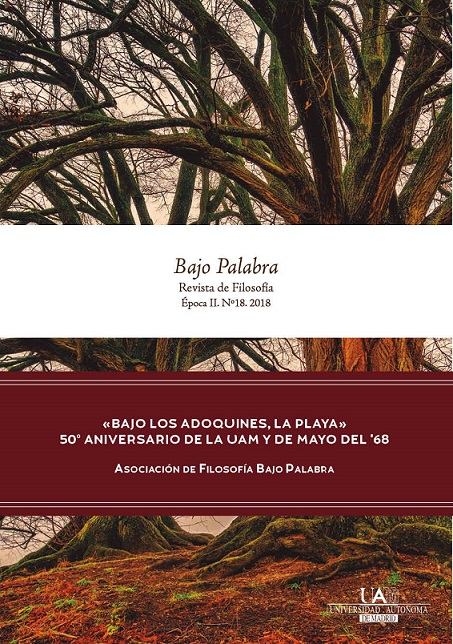A (Very) Brief Doxographical Analysis of Constructivism: from Pre-Socratics to Second-Order Cybernetics
Abstract
Abstract
Constructivism is a philosophical current that manifests itself greatly within the realm of contemporary epistemology. Its bases come from the idea that knowledge is not only actively constructed by the observer but also provides a lens through which reality can be interpreted as a result of experiences. This paper traces a brief interdisciplinary curve that outlines some of the most important philosophical approaches that contributed to the consolidation of this school of thought for more than twenty-five centuries.
Keywords: Constructivism, Cybernetics, Epistemology, History of Philosophy, Perception, Reality.
Downloads
References
Brunswick, Egon, “Ratiomorphic models of perception and thinking”, Acta Psychologica, 11, 1955, pp. 108-109.
Descartes, René, Meditations on First Philosophy, Cambridge, Cambridge University Press, 1996, p. 19. https://doi.org/10.1017/CBO9780511805028
Ensor, George, A Review of the Miracles, Prophecies, & Mysteries of the Old and New Testaments and of the Morality and Consolation of the Christian Religion, London, John Brooks, 1835, p. 85.
Foerster, Heinz von, Understanding Understanding: Essays on Cybernetics and Cognition, New York, Springer-Verlag, 2003, p. 289.
Glasersfeld, Ernest von, “Introduction to Radical Constructivism”, The Invented Reality, New York, Norton Press, 1984, p. 18.
Glasersfeld, Ernest von, Radical Constructivism: A Way of Knowing and Learning, London, Routledge Falmer, 1995, p. 50.
Hume, David, A Treatise of Human Nature, Oxford, Clarendon Press, 1888, p. 252.
Kant, Immanuel, Critique of Pure Reason, Cambridge, Cambridge University Press, 1998, pp. 137-138. https://doi.org/10.1017/CBO9780511804649
Locke, John, An Essay Concerning Human Understanding, London, T. Tegg and Son, 1836, pp. 171-172.
Locke, John, The Works of John Locke, vol. 9, 11th ed., London, Harvard College Library, 1812, p. 217.
Lorenz, Konrad, “Kant’s Doctrine of the A Priori in the Light of Contemporary Biology”, Philosophy after Darwin: Classic and Contemporary Readings, New Jersey, Princeton University Press, 2009, pp. 231-247.
Malebranche, Nicolas, The Search after Truth, Cambridge, Cambridge University Press, 1997, p. 234.
Malebranche, Nicolas, Conversations chrétiennes: Méditations sur l´humilité, Paris, Vrin, 2010, p. 153.
Sextus Empiricus, Outlines of Pyrrhonism, Oxford, Oxford University Press, 1996, pp. 18-19.
Uexküll, Jakob von, A Foray into the Worlds of Animals and Humans: With a Theory of Meaning, Minneapolis, University of Minnesota Press, 2010, p. 50.
Vico, Giambattista, On the Most Ancient Wisdom of the Italians, Ithaca, Cornell University Press, 1988, pp. 93-94.
